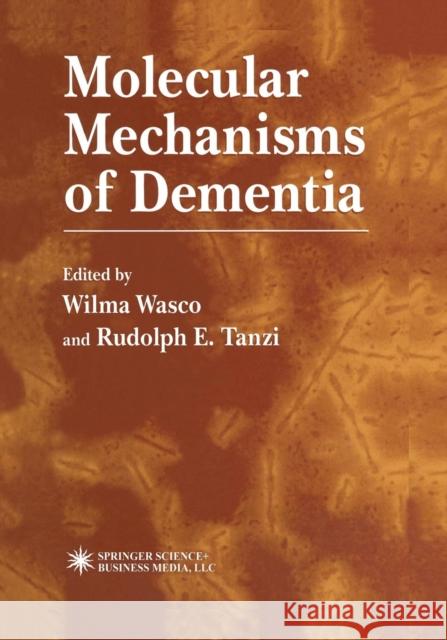Molecular Mechanisms of Dementia » książka
Molecular Mechanisms of Dementia
ISBN-13: 9781475758894 / Angielski / Miękka / 2013 / 312 str.
The past decade has witnessed a revolution in the attempts of scientists to under- stand the molecular basis of dementia. Although dementia, as defined by global cogni- tive decline involving gradual loss of memory, reasoning, judgment, and orientation, presents most commonly in the form of Alzheimer's disease (AD), an assortment of other less common disorders, such as prion and Pick's disease, can also lead to symp- toms that are similar to those observed in patients with AD. The primary goal of Molecular Mechanisms of Dementia is to address the various mechanisms and multi- faceted approaches currently being employed to more clearly delineate the etiological and pathogenic events responsible for the onset of dementia. Perhaps the greatest boon to obtaining a clearer understanding of the causes of AD has come from genetic and molecular biological studies carried out over the past decade. At the genetic level, it has become increasingly clear that AD is a heteroge- neous disorder that can be broadly classified into two categories. "Late onset" (>60 yr) cases, which account for the vast majority of AD, genetically involve "susceptibility" genes representing risk factors for the disease (e. g., inheritance of the 84 allele of the Apolipoprotein E gene). In many cases, the susceptibility gene can act as a "modifier" that modulates the pathogenic cascade occurring subsequent to a separate etiological event "initiating" or "causing" the disorder.











